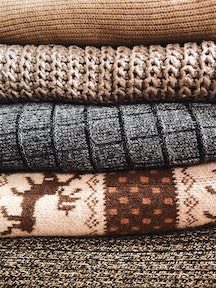Biobased Testing & the Nordic Swan Ecolabel for Textiles
The Nordic Swan Ecolabel sets requirements concerning the production of both natural and synthetic fibers for companies located in Norway, Sweden, Finland, Iceland, and Denmark. Natural and synthetic fibers impact the environment in various ways. Synthetic fibers, for example, use fossil resources, while conventional cultivation of cotton for natural fibers involves high consumption of water and pesticides.
Acceptable fibers for Nordic Swan certification include organic cotton fibers, wool, other creatine fibers (either sheep, camel, alpaca, or goat), regenerated cellulose produced by a closed loop process, flax (linen), silk, bamboo, sisal, and other bast fibers. The Nordic Swan Ecolabel for textiles set strict requirements for fibers and chemicals in a June 2023 update (version 5.3) as part of its efforts to reduce the environmental impact of textiles throughout their life cycles.
Requirements for Textiles and Material Composition include:
- Textiles must be made from fibers that are either organic, recycled or based on renewable resources complying with specific environmental requirements.
- Information provided on whether textile fibers, coating polymer, filling and plastic materials are recycled and/or biobased.

Requirements for Synthetic Fibers of Biobased Origin include:
- Synthetic fibers of biobased origin must contain at least 90% biobased raw material documented by testing in accordance with ISO 16620, ASTM D6866, or an equivalent standard.
Requirements for Raw Materials include:
- Raw materials used in the production of polymer fibers must:
- Not be from palm oil, soybean oil, and soy flour
- Sugar cane raw materials must be either:
- a) waste or residual products defined in accordance with the EU’s Renewable Energy Directive (RED) 2018/2001 and there must be traceability back to the production/process where the residual production occurred, or
- b) sugarcane must not be genetically modified.
- The purchaser of the biobased polymer must document the purchase of certified raw materials for polymer production in the form of an invoice or delivery note.
- All raw materials must be tested in accordance with ISO 16620, ASTM D6866, or equivalent standard showing proof of biobased raw material.
Measuring Biobased Carbon
As biobased products evolve, third-party laboratory testing using ASTM D6866 measurements allow manufacturers to validate biobased carbon content. ISO 17025-accredited lab Beta Analytic offers biobased testing with results available in 7 business days or less.
Beta Analytic is not affiliated with the Nordic Swan Ecolabel. However, you are welcome to contact us if you have any questions on testing fees and sample size recommendations.
References:
- 2023. Nordic Swan Ecolabelling for Textiles, Hides/Skins, and Leather. Version 5.3 01 March 2022 – 01 May 2026.
- 2023. Nordic Swan Ecolabel Criteria. Manufacturing of Textiles, Hides/ Skins and Leather 039.
Photo credit: Eugene Golovesov via Pexels

Join our mailing list to receive news of upcoming webinars by Beta and its subsidiaries as well as other industry updates.
You might also be interested in:
– Nordic Swan Ecolabel for Toys
– USDA – What is the BioPreferred Program?
This entry was posted on Tuesday, September 5th, 2023 and is filed under Biobased Products .